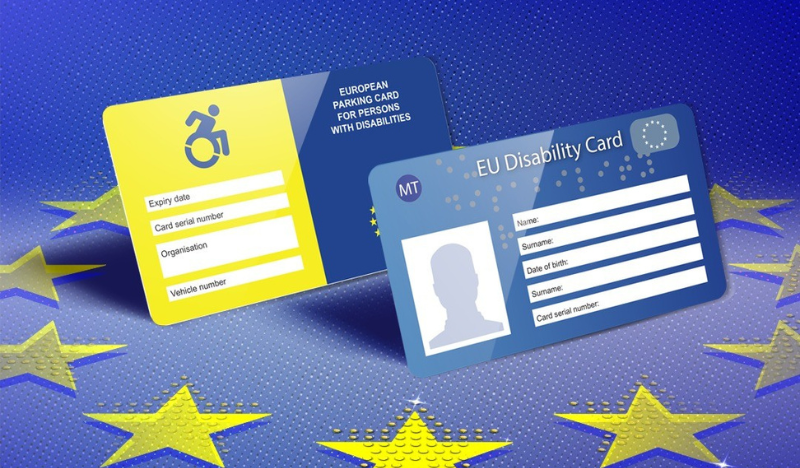On February 8, 2024, the European Parliament and EU Member States reached an agreement on the Directive concerning the European Disability Card and European Parking Card for persons with disabilities. This is a significant step toward enhancing social integration and equality across the EU.
What Does the Agreement Change?
The directive aims to increase the mobility of persons with disabilities by establishing the European Disability Card and improving the European Parking Card for persons with disabilities. These documents will be recognized in all EU Member States, facilitating the acknowledgment of disability status and ensuring access to the same preferential conditions as residents with disabilities of the host country.
Key Elements of the Directive
In September 2023, the European Commission presented a Directive draft based on experiences from a pilot project and the existing in various formats European Parking Card for persons with disabilities.
European Disability Card
The new European Disability Card will ensure access to special conditions when using public transport and preferential treatment at sport, cultural, and leisure events or activities. Benefits may include:
- Free / reduced entrance fees
- Priority access
- Personal assistance
- Braille / audio guides
- Mobility aids
The card will be issued and renewed free of charge, both in physical and digital formats.

European Parking Card for Persons with Disabilities
The improved European Parking Card will ensure equal parking rights and facilities for persons with disabilities. The document will have a common EU format and security features to prevent forgery. The card will be issued free of charge or for a nominal fee, in physical form, with the possibility for UE Member States to offer cards in digital format.
Access to Information
The directive guarantees full access to information on the procedures for obtaining cards, as well as general information about the special conditions and preferential treatment offered to persons with disabilities. UE Member States will establish dedicated websites, with the EU obligated to create dedicated website linking to national ones.
Enforcement of Rights
The agreement ensures enforcement and compliance by empowering persons with disabilities and their representatives to take legal action under national law. UE Member States are required to establish enforcement mechanisms, including the imposition of fines and corrective measures for violations.
What’s Next?
After formal approval by the European Parliament and the Council, the Directive will enter into force on the 20th day following its publication in the Official Journal of the EU. Member states will have 30 months to implement the provisions into their national law. One year after the implementation, persons with disabilities will be able to apply for the cards.
Context and Social Impact
The Directive aligns with the EU Strategy for the rights of persons with disabilities for 2021-2030 as well as the principles of equal opportunities and inclusion outlined in the European Pillar of Social Rights. The Directive contributes to the UN Convention on the rights of persons with disabilities. It is a result of online surveys and public consultations conducted in 2023, highlighting key areas for improvement in supporting individuals with disabilities.
Summary
This agreement opens new possibilities for persons with disabilities, making their daily lives and traveling across the EU easier. It marks a significant step towards building a society where disability is not a barrier, and equality and integration become a reality.
Sources:
https://ec.europa.eu/commission/presscorner/detail/en/ip_24_683
https://www.consilium.europa.eu/pl/policies/european-disability-card/
https://twitter.com/EU_Commission/status/1755881723609399350?s=20 (graphics)

